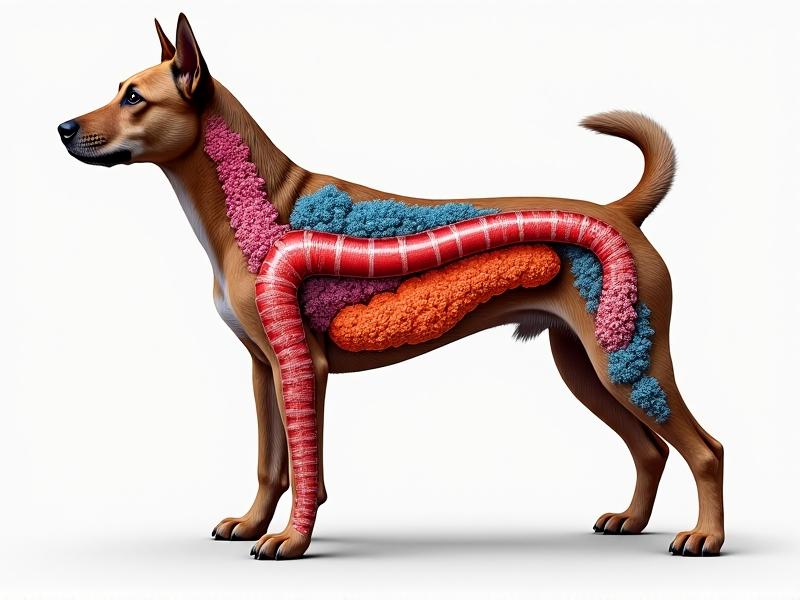Fermented Dog Food: Gut Health Benefits and DIY Preparation
What is Fermented Dog Food and Why It Matters
Fermented dog food is a growing trend in pet nutrition, offering a natural way to enhance your dog's gut health. Fermentation is a process where beneficial bacteria break down food components, making them easier to digest and more nutrient-rich. This method has been used for centuries in human diets, and now it’s gaining traction in the pet food industry. By introducing fermented foods into your dog's diet, you can support their digestive system, boost their immune response, and improve overall well-being.
Dogs, like humans, have a complex gut microbiome that plays a crucial role in their health. A balanced gut can help prevent issues like bloating, diarrhea, and food sensitivities. Fermented dog food provides probiotics, which are live microorganisms that promote a healthy gut environment. These probiotics can help maintain the balance of good and bad bacteria in your dog's digestive tract, leading to better nutrient absorption and fewer digestive problems.

The Science Behind Fermentation and Gut Health
Fermentation is a natural process that involves the breakdown of carbohydrates, proteins, and fats by microorganisms like bacteria and yeast. This process not only preserves food but also enhances its nutritional value. In the case of dog food, fermentation can increase the bioavailability of nutrients, making it easier for your dog to absorb essential vitamins and minerals. Additionally, the probiotics produced during fermentation can help regulate the gut microbiome, which is essential for maintaining a healthy digestive system.
Research has shown that a healthy gut microbiome can have far-reaching effects on your dog's overall health. A balanced gut can improve immune function, reduce inflammation, and even support mental health. Fermented dog food can be particularly beneficial for dogs with sensitive stomachs or those recovering from illness. The probiotics in fermented food can help restore the natural balance of gut bacteria, promoting faster recovery and better long-term health.

Benefits of Fermented Dog Food for Your Pet
One of the primary benefits of fermented dog food is its ability to improve digestion. The fermentation process breaks down complex nutrients into simpler forms, making them easier for your dog to digest. This can be especially helpful for older dogs or those with digestive issues. Additionally, fermented dog food is rich in enzymes that aid in the breakdown of food, further supporting healthy digestion.
Another significant benefit is the boost to your dog's immune system. A healthy gut is closely linked to a strong immune response, and the probiotics in fermented food can help maintain this balance. By supporting your dog's gut health, you can reduce their risk of infections and illnesses. Fermented dog food can also improve skin and coat health, as a healthy gut contributes to better nutrient absorption, which is essential for maintaining a shiny coat and healthy skin.

How to Prepare Fermented Dog Food at Home
Preparing fermented dog food at home is easier than you might think. Start by selecting high-quality ingredients, such as lean meats, whole grains, and fresh vegetables. Chop the ingredients into small pieces and place them in a clean, airtight container. Add a starter culture, such as kefir or yogurt, to introduce beneficial bacteria. Seal the container and let it sit at room temperature for 24-48 hours, depending on the desired level of fermentation.
Once the fermentation process is complete, store the food in the refrigerator to slow down further fermentation. You can serve the fermented food to your dog as a meal or as a supplement to their regular diet. It's essential to introduce fermented food gradually to avoid upsetting your dog's stomach. Start with small portions and monitor your dog's reaction. If they tolerate it well, you can gradually increase the amount.
Tips for Introducing Fermented Food to Your Dog's Diet
Introducing fermented dog food to your pet's diet requires a bit of patience and observation. Start by offering small amounts mixed with their regular food. This gradual introduction helps your dog's digestive system adjust to the new food. Pay attention to any changes in their stool, energy levels, or appetite. If you notice any adverse reactions, such as diarrhea or vomiting, reduce the amount or stop feeding the fermented food temporarily.
It's also essential to maintain a balanced diet. While fermented food offers numerous benefits, it should not replace your dog's regular meals entirely. Use it as a supplement or treat to enhance their overall nutrition. Consult your veterinarian if you have any concerns or if your dog has specific health conditions that might affect their ability to digest fermented food.
Common Mistakes to Avoid When Preparing Fermented Dog Food
One common mistake when preparing fermented dog food is using improper storage containers. It's crucial to use clean, airtight containers to prevent contamination by harmful bacteria. Avoid using metal containers, as they can react with the acidic environment created during fermentation. Glass or food-grade plastic containers are ideal for this purpose.
Another mistake is over-fermenting the food. While fermentation enhances the nutritional value of the food, over-fermentation can lead to spoilage and an unpleasant taste. Monitor the fermentation process closely and store the food in the refrigerator once it reaches the desired level of fermentation. Additionally, always use fresh, high-quality ingredients to ensure the safety and effectiveness of the fermented food.
Frequently Asked Questions About Fermented Dog Food
Many pet owners have questions about fermented dog food, such as whether it's safe for all dogs. Generally, fermented food is safe for most dogs, but it's essential to introduce it gradually and monitor your pet's reaction. Dogs with specific health conditions, such as pancreatitis or severe food allergies, may need to avoid fermented food or consult their veterinarian before trying it.
Another common question is how long fermented dog food can be stored. Properly fermented and refrigerated food can last for up to two weeks. Always check for signs of spoilage, such as an off smell or mold, before feeding it to your dog. If in doubt, it's better to discard the food and prepare a fresh batch.








